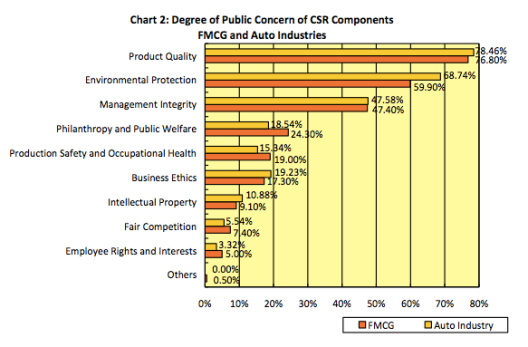Tags
aman singh, aman singh das, brand management, Brand Management, Business, Career advice, careers in CSR, cause marketing, Cone, corporate social responsibility, CRO Magazine, CSR, CSR communications, CSR marketing, CSR programs, CSR strategy, Edelman, employee engagement, Ethics, Golin Harris, Jobs in CSR, jobs in CSR, ketchum, marketing, marketing careers, PR, PR careers, public relations, risk management, Ruder Finn, Sarah Coles, shared value, social responsibility, Social Responsibility, strategic marketing
They say, behind every successful brand, is a PR agency.
How about: Behind every responsible brand, is a PR agency?
Now, what is the first thought that comes to your mind when you hear that a public relations agency has decided to roll its “CSR experience” into a new division offering clients the opportunity to use their PR capabilities and budget more responsibly, more strategically?
- You condemn them as a reactionary, out-to-make-money business;
- You think: CSR is not PR, how many times do we have to say it?
- Wonder how long this will last.
- That’s interesting. Yet another way we can help businesses create shared value
That last statement was the main driver behind Ruder Finn’s new CSR practice, which officially launched two months ago, according to Senior Vice President Sarah Coles. “We had already been doing CSR work with clients like Novartis and Gerber. It felt like a natural next step [for the firm],” she says.
The communications industry is abuzz with the notion of creating shared value and the professional services sector especially, is in the center of all the activity.
Of course, Ruder Finn is not the first PR company to offer CSR strategy and solutions. Edelman has a robust CSR and sustainability solutions practice, as do Burson-Marsteller, Ketchum, Golin Harris, Cone, and many others.

In fact, a quick search revealed that CRO Magazine even released a Top 10 list of “Corporate Responsibility PR firms” back in 2008, that placed Ruder Finn at No. 5. But how do you decipher such a ranking? If Ruder Finn was already being lauded for “CSR PR (?)” in 2008, what propelled them to create a new division now three years later?
And the big question: What is the differentiator in this burgeoning industry?
I turned to Coles who will be leading the new practice and has spent 13 years in PR with the last seven at Ruder Finn, for some answers.
“When I started working with clients on CSR strategy, it wasn’t called CSR. Many were doing this without realizing it was called CSR. For example, at Novartis, we didn’t see our work in malaria treatment as CSR per se. It was part of their core mission, part of everyday business.”
“My first contact with CSR was when I started working with Gerber on childhood nutrition and later with Novartis. In the five years that followed, I got the chance to really see the effects of giving back to your community. I got to meet some of the patients and really saw firsthand the challenges that we in the western world would otherwise never understand. The whole experience really changed my impression of what needs to get done.”
The Case For CSR: What were the main motivations behind setting up a new practice focusing on CSR?
“There is a demand today to put together more strategic CSR programs; programs that are distinguished, unique to the company, and meaningful.”
“Consumers are pretty smart these days: They can see when something is reactionary and when it has been a longterm commitment. They trust brands that have longterm missions and whose programs are in sync with brand value.”
“A great example is the latest Tide for Hope campaign. It’s a perfect example of how core competencies can help provide value. This builds way more trust than something thrown together in a short-term cycle.”
“Ruder Finn also strongly believes that this is not only an opportunity to grow our practice but also to help define what the industry means by CSR and educate companies the issue to ensure that it continues to build as a best practice.”
The Nature of PR: Aren’t most programs reactionary in nature at first contact?
“It’s certainly a mix. Some companies who have been doing this for a long time are doing well and CSR contributes to that reputation. They build trust. Others are more reactionary but won’t be sustained or provide strategic value in the long run.”
“There is a real business case for CSR and companies are beginning to see that. Companies that have longterm Initiatives don’t have to resort to crisis management and there is value in that.”
Strategizing CSR: What then is the underlining ethos of the new practice?
“We learned a lot from working with PepsiCo on their Dream Machine recycling program. Today, we see a real opportunity in helping clients with cause marketing initiatives that reinforce their business practices and core competencies.”
“We counsel clients to do corporate social responsibility strategically. To build something that looks inside the company…dig around and see what they are already doing, what they stand for, what their core values are, and then create a campaign that captures all of that.”
Implementing CSR: How is implementing a CSR strategy going to differ from PR campaigns?
“We’re moving into pure strategy now. It’s not about short-term projects anymore. CSR is more about what makes sense for the business. How can I create something that my company stands for and does good for our community at the same time?”
“These programs go to the root of what CSR is all about: Good business sense that also provides value.”
Comments? Thoughts? Leave a comment or connect with me @AmanSinghCSR.

Pingback: Revisiting the PR Take on CSR: “Corporate Responsibility is Not Public Relations” « In Good Company: Singh on CSR
Hi Aman,
Hmmm… I am not convinced that this practice is anything but PR or cause-related marketing when a cause is inserted. But you did have me until the end; lost me with the following statement: “How can I create something that my company stands for and also does good at the same time?” A company’s CSR is inherent in everything it does; it exists or it doesn’t. By the time the PR firm rolls in, creation should not be in the vocabulary.
Cathie
LikeLike
Well said Cathie. However, I believe in the strength of collaboration. If an industry, in this case the PR and marketing sector, decides to shift course and stand up for responsible business practices, then we can actually hope for some change. This trend must bring positive change by modifying how we have traditionally approached PR, brand management, etc.
LikeLike
I agree with Aman. To incorporate CSR into the strategic DNA of a company, every department has to be involved. PR is reactionary and involved in the final stages of a of the value chain. However, there is a growing trend for PR and marketing departments to link a product or service to the core values of the company as that reflects what the employees believe in. Also Marketing is all about identifying to consumer values. Today successful companies are those that have a strong community amongst its consumers. Take cliff bar or Patagonia as an example. Strong following of climbing and cycling enthusiasts. These smart companies have differentiated between consumers and community that believe in their product.
IMC2 did an ad campaign on the women’s deo Secret. The strong brand value was identifying fear with women and the following ad campaign was all about eliminating fear and letting women be who they are. This brand value came from company executives and the ad campaign said nothing about the deo but more about what the company and the product believed it.
To follow this campaign about authenticity of brands follow this link http://www.imc2.com/clients/secret.
LikeLike
Thanks Brinda!
LikeLike
Hi Aman,
The headlines tells it all as far as India is concerned. Almost all major companies are using PR to promote their CSR. In fact in most PSUs the reporting part is let to the PR department and even the head of CSR does not enjoy the right to dispense information about their CSR activities.
I once called on the General Manager in charge of CSR of a large PSUs headquartered in New Delhi. He refused to answer even the most simple questions about the company’s CSR activities. I was told to get in touch with the PR department. However when I was taking leave he gave me a document rolled inside a newspaper advising me to open it only after I have left the office premises.
There should be no objection to linking CSR with PR but using CSR to promote the interests of the company without providing material benefits for the stakeholder is wrong. You spend a few rupees on the CSR activity and thereafter many times more to gain publicity is not good CSR
LikeLike
Completely agree with you Suresh. I’m not completely shocked with the incident you describe. It will take years to change these mindsets. That is why I feel so strongly about the role media can play, if we want to, in changing these habits and attitudes. After all companies depend on the media for their PR activities so what if we as journalists set a few prerequisites for these PR solicitations?
LikeLike
Good article.
I created this PDF essay titled “Role of Leaders” several years ago. http://www.tutormentorexchange.net/images/PDF/Role%20of%20Leaders.pdf
It says “1) pick a cause, 2) appoint a get it done person; 3) research what you’re already doing, what the competition is doing, what the opportunities are; 4) encourage employee involvement; 5) give recognition to those involved, encourage networking and sharing ideas; 6) encourage others to get involved; 7) summarize what you accomplished at end of year and report that to CEO along with goals for next year.
I had never heard of CSR when I first created this yet is seems that a lot of companies might adopt something like this to lead them into strategic involvement with social issues. Looks like I’ll need to update my own essay to build in some CSR buzz words.
LikeLike
Pingback: KPMG’s Citizenship Director: Occupy Wall Street Protests Must Drive [Business] Transformation « In Good Company: Singh on CSR
Pingback: Driving Innovation: Patagonia's 'Sustainable Salmon Jerky' and Naked Pizza's 'Healthy Fast Food' - Forbes